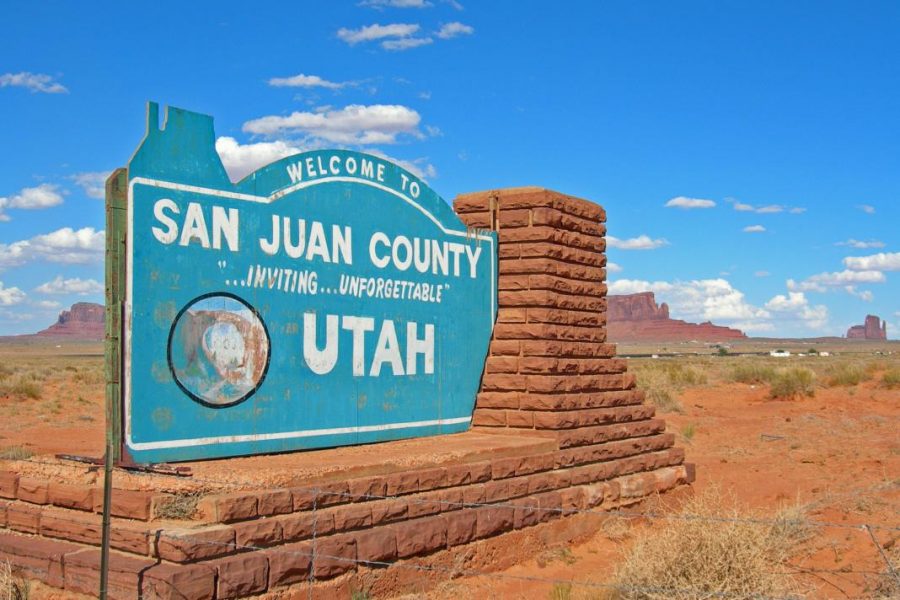Since the conception of voting districts in San Juan in 1984, American Indians, while the predominant race in the area, only held a majority in one of the three commission voting districts. Last year, U.S. District Judge Robert Shelby declared San Juan County’s voting districts, “racially gerrymandered” and demanded immediate redistricting. After rejecting San Juan County’s proposal for new voting districts, Judge Shelby hosted public meetings to gain local feedback and appointed an independent expert, Dr. Bernard Grofman of the University of California Irvine Political Science Department, to impartially redistrict San Juan. In December of 2017, Shelby adopted Grofman’s proposed districts, increasing the number of commission districts with Navajo majorities from one to two. With a special election to be held in November for County Commission and School Board seats, it is likely the Navajo community will gain more representation in the county.
As 60 Republican delegates from San Juan County filed into Monticello High School’s cafeteria, named after Thomas Jefferson’s Virginia plantation, the optics of this spring GOP convention underscored the racial tensions palpable throughout the entire county. Facing the reality of being a racial and political minority in his district, one man told The Salt Lake Tribune, “I feel like we’ve been disenfranchised.” Many others echoed his sentiment, calling Judge Shelby a “totalitarian” with “an ax to grind with San Juan County.” Kenneth Maryboy, a Navajo and former County Commissioner, summed up the white community’s reaction to Grofman’s districts saying, “Now things are changing, and they don’t feel good about it.”
San Juan is a politically dynamic community with historically strained race-relations between native and white people. However, every concern brought up in the Monticello GOP Convention seems to parallel injustices American Indians have faced in the United States. Current Commissioner Phil Lyman repeatedly told those gathered that the federal government was the biggest enemy facing their community. Being so focused on their own loss of power, Lyman and his supporters have neglected the history of federal abuse native people have suffered and continue to suffer. Over 200 Navajos died on The Long Walk, a forced tribal relocation by the US Government, and today federal law protects non-indigenous rapists from tribal prosecution. Losing a commission seat cannot be compared to the loss of land and sovereignty caused by colonization.
While fighting Judge Shelby’s redistricting decision in 2017, San Juan County’s attorney Jesse Trentadue argued it was unfair that 47 percent of San Juan’s population, whites, should only have one representative on the commission. By this logic, San Juan’s native people, 50 percent of the overall county population, have been treated unfairly by voting districts for 33 years. Reading Grofman’s preliminary proposal, it is evident the new district boundaries were not motivated by race but by census geography as Grofman strived to not divide communities into separate districts. Elevated tribal representation is bound to alter centuries of political suppression. White citizens of San Juan can hope that in November, the newly elected Commissioners respond with empathy and act with compassion as each of their hypothetical concerns have been realities for their native neighbors.
m.barron@dailyutahchronicle.com
@TheChrony



